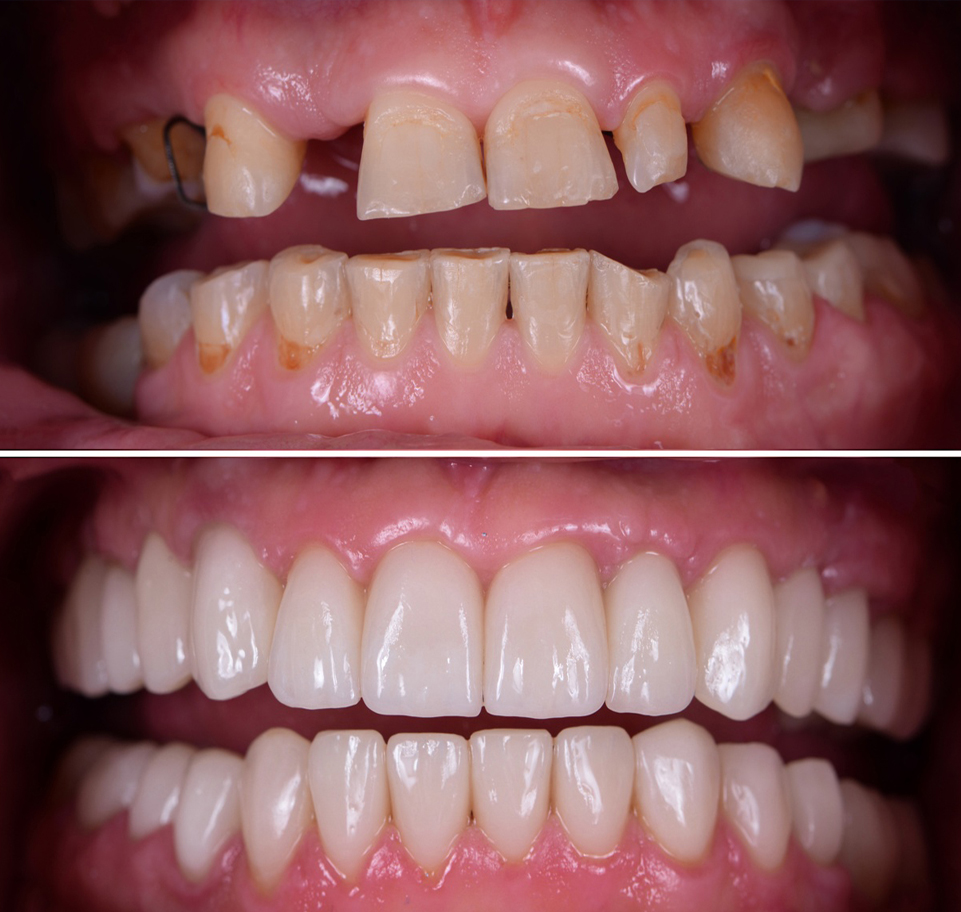Where to find us?
Rue des Boudine 15
1217 Meyrin
Business hours
Mon : 09:00 - 18:00
Tue - Fri : 08:00 - 18:00
Sat : 10:00 - 16:00
Where to find us?
Rue des Boudine 15
1217 Meyrin
Business hours
Mon : 09:00 - 18:00
Tue - Fri : 08:00 - 18:00
Sat : 10:00 - 16:00

Certain risk factors such as stress, anxiety, psychological trauma or even taking certain medications and drugs can induce an unconscious, repetitive and long-term reflex: clenching of the teeth, or grinding of the teeth (bruxism), occurring during the day or during sleep.
These phenomena involve the masticatory muscles of the jaw and then inflict muscle "knots" responsible for regular headaches, muscle stiffness, fatigue or even nausea, which can then present a real handicap in the daily life of the patient.
Some scientific observations have also associated bruxism / clenching with disorders of the temporomandibular joint.
The consequence at the dental level will be akin to functional wear thus showing short teeth with a "shaved" appearance, which can cause chewing and aesthetic disorders.
The management of these disorders begins first with a history and an interview with the dentist in order to try to determine the cause of these mandibular dysfunctions and to work on it jointly with the patient. Treatment may require recourse to other health professionals such as psychologists, physiotherapists or maxillofacial surgeons.
The treatment of choice at the dentist is the making of a night splint. This device, made in the least bulky way possible for the comfort of the patient, is worn on the upper dental arch overnight. When the patient clenches or grinds his teeth overnight, the splint will then protect him from tooth wear by preventing occlusal contact. It will also induce a stretching of the masticatory muscles (instead of a harmful contraction) by sliding the opposing teeth on the surface of the gutter and relieve contractures and muscle knots.
These functional disorders of the mandible are unfortunately quite common in the population and the individualized preparation of the night splint can thus relieve many symptoms.
The wear of the teeth can be induced by these friction phenomena mentioned above. But the regular ingestion of acidic drinks (sodas, juices etc.), or the regular vomiting of a patient (eg in the case of eating disorders such as bulimia / anorexia) are also causes of dental damage. When the situation becomes chronic with a certain severity, total prosthetic rehabilitation can then be considered. It consists of the functional and aesthetic reconstruction of all the teeth using crowns, onlays and dental veneers and to give the patient a whole new smile. This support is done in collaboration with an expert dental technician.

The wear of the teeth can be induced by these friction phenomena mentioned above. But the regular ingestion of acidic drinks (sodas, juices, etc.), or the regular vomiting of a patient (eg in the case of eating disorders such as bulimia / anorexia) are also causes of dental damage.
When the situation becomes chronic with a certain severity, total prosthetic rehabilitation can then be considered. It consists of the functional and aesthetic reconstruction of all the teeth using crowns, onlays and dental veneers and to give the patient a whole new smile. This support is done in collaboration with an expert dental technician.